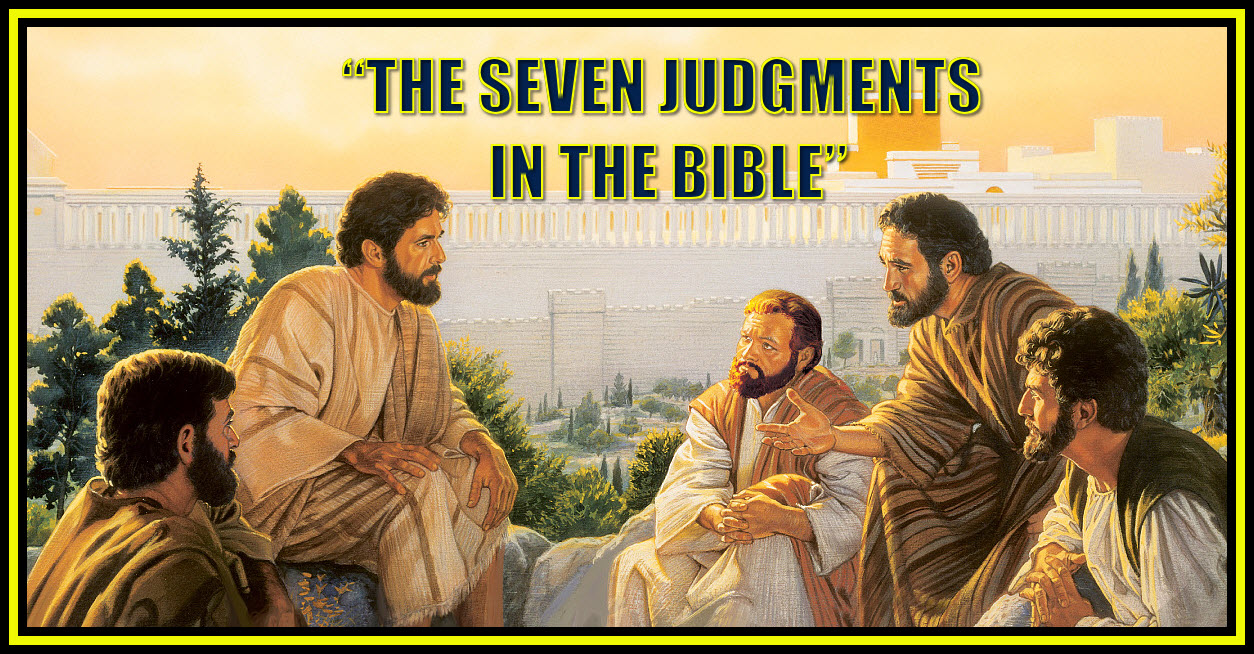Have you ever wondered how many judgments are mentioned in the Bible? In this blog post, we will explore the different types of judgments found in the scriptures and delve into their significance for our lives today. Understanding the various judgments in the Bible can offer valuable insights into God’s justice, mercy, and ultimate plan for humanity.
By uncovering the multitude of judgments in the Bible, we can gain a deeper understanding of God’s character and His expectations for His people. These judgments serve as moral lessons and warnings, guiding us on the path of righteousness and helping us navigate life’s challenges with faith and wisdom. Join us on this journey of discovery as we unpack the significance of the judgments in the Bible and how they can shape our spiritual growth and relationship with God.
Exploring the Multifaceted Judgements Found in the Bible
How Many Judgments Are There in the Bible
Throughout the Bible, there are several instances where judgment is discussed, either as an act of God or as a moral imperative for believers. The concept of judgment in the Bible is multifaceted and can refer to various forms of evaluation, consequences, and final rulings.
One of the most well-known forms of judgment in the Bible is the final judgment described in the New Testament, often referred to as the Last Judgment or Judgment Day. This event is believed to be the ultimate assessment of individuals’ actions and beliefs, determining their eternal destiny.
In addition to the final judgment, there are numerous other judgments mentioned in the Bible. For example, the Old Testament describes various judgments carried out by God against individuals, nations, and even the Israelites themselves. These judgments often serve as a means of correction, discipline, or justice.
Another form of judgment found in the Bible is the concept of earthly judgment or discernment. Believers are encouraged to exercise discernment in their daily lives, judging right from wrong and making decisions in accordance with God’s will. This kind of judgment is seen as necessary for maintaining moral integrity and spiritual growth.
Overall, the Bible contains a rich tapestry of teachings on judgment, encompassing a wide range of contexts and implications. From the final judgment to earthly discernment, the concept of judgment plays a central role in shaping believers’ understanding of accountability, justice, and righteousness.
How many Judgement days are there in the Bible?
In the Bible, there is one Judgment Day commonly referred to as the final judgment. This is a day when God will judge all people for their actions and determine their eternal destiny.
What are God’s Judgements in the Bible?
In the Bible, God’s judgments refer to His decisions and actions regarding moral issues. Throughout the Bible, we see instances where God judges individuals, nations, and peoples based on their deeds and faithfulness to Him. These judgments can come in the form of blessings for obedience or consequences for disobedience.
One of the most well-known examples of God’s judgment in the Bible is the story of the Great Flood in Genesis, where God decided to destroy the earth because of its wickedness but spared Noah and his family because of their righteousness.
Another example is the story of Sodom and Gomorrah in Genesis 19, where God judged the cities for their sinfulness and destroyed them with fire and brimstone.
In the New Testament, God’s judgment is often associated with the final judgment at the end of time, where all people will be held accountable for their actions and beliefs. This concept is described in various passages, such as Matthew 25:31-46 and Revelation 20:11-15.
Overall, God’s judgments in the Bible serve as a reminder of His justice, righteousness, and sovereignty over all creation.
What are the 4 Judgements in the Bible?
In the context of the Bible, there are four main judgments referred to:
1. The Judgment of Believers: This is known as the Judgment Seat of Christ (2 Corinthians 5:10), where believers will be rewarded based on their faithfulness and works done for Christ.
2. The Judgment of Nations: This judgment is mentioned in Matthew 25:31-46, where nations will be judged based on how they treated the least of these, referring to those in need.
3. The Great White Throne Judgment: Described in Revelation 20:11-15, this judgment is for the unbelievers, where they will be judged according to their deeds and ultimately sentenced to eternal punishment in the lake of fire.
4. The Judgment of Satan and Fallen Angels: This final judgment is detailed in Revelation 20:10, where Satan and his followers will be cast into the lake of fire for eternity.
What are the five Judgements in the Bible?
There are five main judgments mentioned in the Bible:
1. The Judgment of Believers – This is also known as the Judgment Seat of Christ, where believers’ works will be evaluated by Jesus to determine rewards or loss of rewards in heaven (2 Corinthians 5:10).
2. The Judgment of the Nations – This judgment occurs after the Great Tribulation and involves separating the righteous from the unrighteous (Matthew 25:31-46).
3. The Judgment of Satan – Satan will be judged and eternally punished for his rebellion against God (Revelation 20:10).
4. The Great White Throne Judgment – This judgment involves unbelievers standing before God to be judged for their sins and ultimately being cast into the lake of fire (Revelation 20:11-15).
5. The Marriage Supper of the Lamb – While not a judgment in the traditional sense, this event is a celebration of the union between Christ and His bride, the Church (Revelation 19:6-9).

